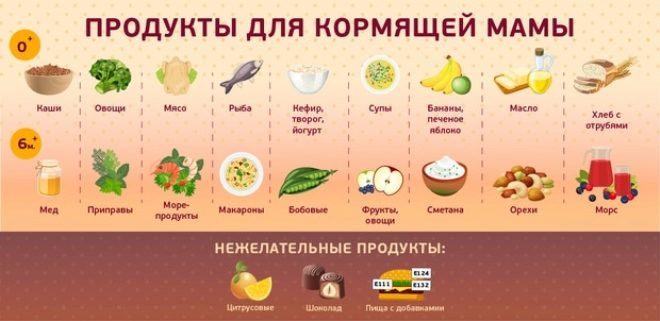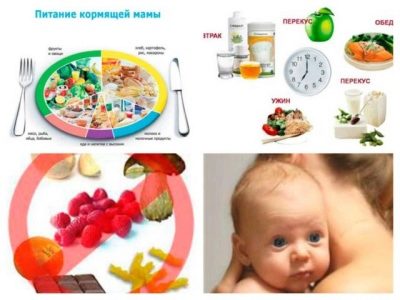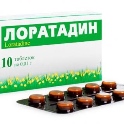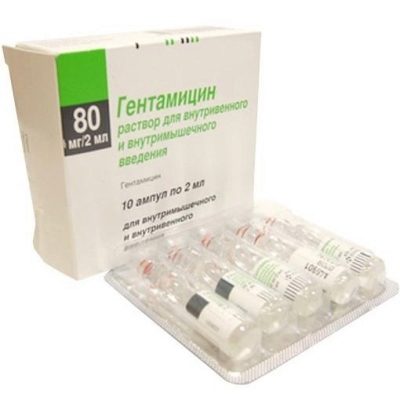Doctor Komarovsky about breastfeeding
There is nothing more natural than breastfeeding. However, this process, envisaged by the wise nature, raises hundreds of questions both to the young moms themselves and to their relatives. And it's not about what kind of childbirth occurred. Experienced mothers with many children know for sure that children are different, they eat differently and lactation also happens differently each time. Therefore, the number of questions on breastfeeding does not decrease. Renowned pediatrician and TV presenter Yevgeny Komarovsky eagerly and extensively talks about this topic, since he considers it very important.
Advantages and disadvantages
Breastfeeding is the best thing a mother can give to her baby. This is due to many reasons:
- Mother's milk contains all the necessary substances, vitamins and trace elements that your baby needs for healthy development. Not one, even the most expensive and good, adapted milk formula is able to give a crumbs more than mom's milk.
- Breast milk contains antibodies to the most common infectious diseases. Peanut, getting them during breastfeeding, grows stronger and healthier than their peers who are bottle feeding. As long as his body is nourished, a small and so far immature immunity learns to recognize and defeat viruses and bacteria.
- Mom and child are not "chained" to the house. They can well afford a long journey, as the power source (mother) is always nearby, and there is no need to constantly sterilize the bottles, nipples and worry about having formula milk.
- Breastfeeding allows you to establish a closer emotional contact between mother and baby.
- Mummy's body during breastfeeding recovers faster after childbirth, under the influence of oxytocin, which is released during lactation, the uterus contracts faster, and breastfeeding itself takes up about 700 Kcal of energy per day from breastfeeding, which contributes to weight loss.
Since the second half of pregnancy under the influence of progesterone and estrogen in the mammary glands of a woman, the secretory tissue grows, and colostrum begins to be produced. Immediately after the birth of the baby, the colostrum begins the transition in its composition to milk directly. Its quality and quantity depend on many factors. For convenience, we have combined the answers of Evgeny Komarovsky to the most frequent questions of women about breastfeeding.
But actually the doctor Komarovsky herself with his opinion about breastfeeding.
"How to feed - on demand or by the hour?"
In Soviet times, it was recommended to feed children by the hour. First, every 2.5-3 hours, then after 3-3.5 hours, and by the age of six months the baby entered the feeding schedule every 4-4.5 hours. This was considered the only correct way to raise a healthy child.
Now pediatricians are increasingly in favor of feeding on demand - offering him the breast when he wanted to eat. As a result, the crumb almost constantly “hangs” on the chest, the tired mother fails to do anything else, and feeding has to be done every 1.5 hours, even at night.
The young mother, who is in prostration, the grandmothers in one voice advise to feed the child in the old manner, and the all-knowing Internet, girlfriends and some doctors - on the contrary. Hence the questions, how to feed properly.
Evgeny Komarovsky does not consider himself a supporter of feeding on demand. He argues that transferring the child to certain time intervals between meals will only add order to the life of the whole family. Mom will have time to go to the doctor, to the store, to the hairdresser, to sleep in the end.
It does no harm to the baby, because after he threw his chest, he ate, he would not have a physiological need for food for 3 hours. If he woke up and started crying again, this is not a requirement to eat, as many moms think, but rather a demand for attention and a need to feel protected. To do this, do not necessarily give crumbs breasts. You can just take it on the handles, squeeze it to yourself, shake a little.
Komarovsky advocates the so-called "free feeding." With it, the child himself determines the hours of feeding, but the intervals between meals are nevertheless maintained and observed by the parents.
But a small excerpt about what time is the most optimal for feeding a newborn
In favor of feeding on demand, Evgeny O. brings the fact that the amount of milk produced always meets the needs of the baby. In other words, the more often it is fed, the more breast milk is produced.
However, the final choice Evgeny O. in this matter leaves for the mother. Feeding at the request of the child does not harm, it is harmful for parents. But if they are ready for this, and they want it voluntarily, then it is only their decision, their child will not develop any other way than if it would eat on a certain schedule.
"Do I feed at night?"
Komarovsky argues that if a child is gaining weight well, then you do not need to wake him up for night feeding. Children from birth may well endure a night pause in feeding for 4-5 hours, and from three months to 5-6 hours.
Another thing, if the baby wakes up at night and demands to eat. In this case, he does not need to refuse.
Everything changes when a child turns six months old. At this age, according to Komarovsky, the toddler physiologically no longer needs a nightly meal, and therefore it can be smoothly weaned from the habit of eating in the middle of the night. To do this, according to the doctor, you need to arrange a late bathing (at 22-23 hours), then feed the child tightly and put him in a well-ventilated room, where it is not stuffy and not hot (air temperature is about 19 degrees).
If after six months the baby indulges in his desire to wake up in the middle of the night and yell until he gives a breast, then, according to Komarovsky, you can achieve the opposite effect - the child will begin to suffer from overeating, wake up and cry no longer from hunger, but from gluttony, from pain in the stomach, distended. Mom, of course, immediately offer the crying child a chest, he will take it to calm down, and as a result we will have a vicious circle that will not lead to anything good.
Also, Evgeny Olegovich reminds mothers that not every child’s nightly awakening is caused by hunger. Before giving him a breast, it is necessary to find out if the baby is not experiencing discomfort - is it dry, is it comfortable for him in the bed, is it not hot? It may not be necessary to feed him this time.
But the opinion of Dr. Komarovsky on how long breastfeeding needs to be maintained.
Why does the baby refuse to breast?
Most likely, says Komarovsky, your child is not hungry. Hunger instinct works perfectly from the very first minutes of a person's life, but because mothers just need to learn to trust their young children. Crumbs know exactly what they want. If the baby threw a breast, then he does not want to eat. If he is underweight, he will scream and not be persuaded to calm him down.
Another reason why a baby can refuse a breast is the unpleasant taste of milk. His son or daughter know well and can react to changes in the composition. However, these changes should be significant, the child will not react to minor ones.
For example, smoking or drinking alcohol taken by the mother during breastfeeding may cause the milk to become bitter. And too harsh perfume, which is used by the mother, can generally push the baby away from the breast. To cope with the problem will help balanced proper nutrition of a nursing woman.
It seems to me that the baby does not have enough milk! Do I need a supplement mixture?
Mother's milk contains everything a baby needs, and therefore, for up to five months, Komarovsky does not see any need for the introduction of complementary foods. The doctor says that it is not necessary to sound the alarm about the malnutrition of the baby, if the child is well-balanced, the local doctor has no concerns about the baby.
However, if lactation is insufficient, the baby is not gaining weight well, it may be necessary to supplement it with a mixture. But this question should be solved individually by the doctor, observing the child. Komarovsky advises in any case, even with the introduction of a supplement, not to stop breastfeeding, so as not to lose milk at all. In addition, he recommends that you show your doctor exactly how your chest attachment occurs. If there are errors, the pediatrician will necessarily indicate them and correct them.
How to increase lactation?
The problem of insufficient lactation, according to Yevgeny Komarovsky, is usually contrived by the moms themselves. First they come up with this problem, and then they start to get nervous, which in itself does not improve either the quantity or the quality of breast milk.
The doctor considers the stimulation of the nipples and regular attachment of the infant to the breast, regardless of whether there is enough milk there or not, as the surest way to increase the amount of milk.
You can also increase lactation with the help of special teas for mothers, proper and adequate nutrition. Evgeny Olegovich focuses precisely on eating behavior. Moms who want to lose weight as soon as possible after childbirth, and begin to limit themselves in fats, carbohydrates, are at risk of being among those who have insufficient lactation.
If a woman drinks little fluid, her lactation also decreases.
Stressful situations and physical activities of a nursing woman also lead to a decrease in milk production. Thus, if you eliminate the negative factors and pay attention to nutrition and proper rest and adequate sleep, then lactation will return to normal and milk will be enough.
What can you eat nursing mom?
This question is probably asked more often than anyone else. You can eat almost anything, says Komarovsky, with the exception of strong allergens that can provoke an unhealthy reaction in a child. What must be in the diet:
- Milk and dairy products. It is better if it will be products that do not contain chemical and food dyes, it is better to avoid store yoghurts and mousses. The minimum amount of milk in the mother's diet is at least 300 ml per day. In the first three months after birth, milk should be discarded.
- Vegetables and fruits. It is better to eat them at every meal, Komarovsky says, since fiber is necessary for the normal functioning of the mother’s intestines. And vitamins are useful both to her and to the child. However, you should refrain from eating oranges, lemons, tangerines and limes, as citrus fruits can cause allergy. Carefully mom should eat red berries (strawberries, raspberries, cherries).
- Meat, a fishbird. These are sources of protein, which is required in large quantities for both mother and baby. Therefore, it is desirable that the dishes from these products were on the table of the mother several times a day.
- Kashi. The most "useful" for nursing mothers - cereal cereals, and there is no special value, they are dairy or cooked in water. Preferred buckwheat, oatmeal, rice.
You should not eat smoked meats, mayonnaise, spicy seasonings.For a while, it is worth refusing from confectionery, since a large amount of sugar and carbohydrates can cause a violation of flatulence in the mother, and the baby will be more tormented by gas and colic.
Quite often it is possible to hear that halvah is useful for a nursing mother. This is a dangerous mistake, says Yevgeny Komarovsky. Halva is quite a strong allergen, and it is better for a woman to abstain from it. As well as the use of coffee, especially soluble. This drink is not only an allergen, but also acts as an aphrodisiac, and this baby is definitely not necessary. If, before the pregnancy, the mother could not live a day without a cup of coffee, then after the birth this drink can be replaced with chicory. It tastes like coffee, but chicory does not contain caffeine, and therefore the question of a possible allergy or over-stimulation of the nervous system in a child is removed completely.
Komarovsky emphasizes that the main thing in feeding a nursing mother is the quality of food.. They should be fresh, as far as possible, natural, without preservatives and all sorts of additives. Nowadays it’s quite difficult to find such, but young parents must learn to read labels with information about the composition. In order to choose the least harmful and most useful.
But actually the doctor Komarovsky himself with a comment for nursing mothers
What medications can I take?
Almost all medications are contraindicated during breastfeeding, which is always written in the instructions for use of drugs. But if a situation arises in which a mother cannot do without drugs, the attending physician and pediatrician, who supervises the child, should decide whether to take certain pills and injections.
With a cold, mother should not take any medications, except for drugs that contain paracetamol. In case of a breakdown of the stool or vomiting, mothers can take “Smecta”, “Maalox"," Almagel ". For severe allergies, a doctor may allow a woman to take second- and third-generation antihistamines, such as "Loratadine"," Erius. "
Require special attention antibiotics when breastfeeding. Most of them are contraindicated nursing mothers. But if there is a real risk to the life and health of the mother, the doctors go on antibiotic prescriptions, regardless of the fact that she is breastfeeding the baby. In this case, according to Komarovsky, antibiotics of the penicillin group can be justifiably prescribed, and if they do not help, or the infection is quite severe, antibiotic drugs of the cephalosporins group will be used.
Nursing mothers can not under any circumstances take anticancer drugs that are prescribed to patients with oncological diagnoses. Breastfeeding with antibiotics - aminoglycosides is incompatible, since "Neomycin", "Gentamicin" and similar drugs can cause deafness in the child, impaired bone formation and many other unpleasant consequences.
Mothers who breastfeed cannot be treated with drugs for the treatment of autoimmune diseases, as well as hormones, especially estrogen-based contraceptives.
If it so happens that a woman necessarily requires treatment with medicines that are incompatible with breastfeeding, and there is no time to wait until the child grows up, feeding is stopped. In addition to treatment, women are given drugs that quench lactation (“Bromkriptin”), so that mastopathy does not start, and it is recommended to pull the breasts.
Until what age to breastfeed?
Pediatricians in this matter can not come to a common opinion. Some argue that it is necessary to stop feeding with breast milk when the child is 3 years old, often called age - 2 years. Evgeny Komarovsky in this matter is quite categorical - 1 year and not later.The doctor explains his position by saying that after 12 months of breastfeeding, mother’s milk begins to lose valuable and beneficial properties for the baby, it becomes essentially useless.
Moreover, it is no longer able to meet the needs of a rapidly growing organism. The child already needs meat, fruits, vegetables. No wonder he had the first teeth! Nature herself hints to her mother that her mission as a wet nurse is fulfilled and it’s time to finish.
General tips
- Wean from the chest should be gradually, not sharply. Komarovsky recommends reducing the number of feedings for 1 per day, replacing them with another food - cereals or vegetable and fruit purees. A sharp weaning is a great stress for the child, emphasizes Evgeny Olegovich.
- With increased lactation, when a woman has more milk than a child is able to eat, you should express it. Komarovsky also recommends using a breast pump not only for expressing excess milk, but also for normalizing lactation insufficient, because such stimulation will allow to increase lactation quickly at home.
- Do not listen to any advice, even those that he gives. That is how Dr. Komarovsky finishes his lectures on breastfeeding. Each of the newborns is unique, and there is no single approach to all children. That is why mom should look at her child, watch him, learn to understand him, trust him, but not forget about the principles of parental rationality.












































